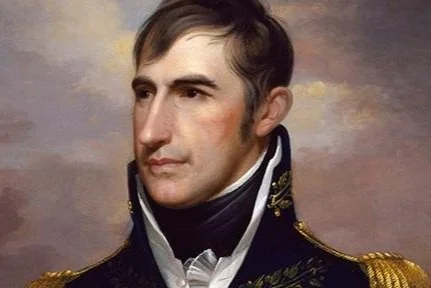Mr. Jefferson's Hammer: William Henry Harrison and the Origins of American Indian Policy Book by Robert M. Owens (Review)
I am now over halfway through my goal of reading a biography of each American president, and I am confident there is little I could have recalled about William Henry Harrison from my history classes. Perhaps the one tidbit I could have remembered was his status as Benjamin Harrison’s grandfather (which is nearly all I remember about Benjamin Harrison).
Despite his influence on the nation’s westward expansion, the elder Harrison is a good example that many people fade from history in the public memory. But we run great risks by failing to remember the events and people that brought us to today.
The shortcomings of our collective memory do not lessen the effect of the leaders and how the echoes of the past can still reverberate today. Mr. Jefferson’s Hammer is only a partial biography of William Henry Harrison, and it focuses on his tenure as territorial governor of Indiana when the United States was expanding further into Native American territories. The policies of William Henry Harrison have a connection to Kansas and my home in Shawnee, and it is a history that warrants remembering.
Robert Owens begins the story with the Chesapeake–Leopard Affair, which highlighted the tensions between the United States and Great Britain leading up to the War of 1812. The HMS Leopard was a 50-gun British warship, which pursued the American frigate, Chesapeake in 1807. The British were intent on finding navy deserters, but the Chesapeake refused to be boarded. The Leopard’s captain, Salusbury Pryce Humphreys, unexpectedly opened fire, which prompted an immediate surrender by the Chesapeake.
The reason the naval battle works as a springboard for the book is because the British maintained strategic alliances with multiple American tribes, which came to a head with the War of 1812. The alliances complicated American expansion, which led to many of Harrison's efforts and policies. Owens also introduced his readers to Shawnee trio of Chief Bluejacket, Tecumseh, and Tenskwatawa, the Shawnee Prophet. I found this portion particularly interesting in part, because Chief Bluejacket was the grandfather of Charles Blue Jacket who lived near my home in Shawnee.
My summary leans toward the historical rather than the Harrison as a person, because frontier life and U.S. policy toward Native Americans is the focus of the book. Even knowing this scope going into the book, I still found myself slightly disappointed, simply because Owens was excellent at exploring Harrison in the portions where he delves into Harrison’s family life and personality. I would have welcomed learning more about Harrison and his eventual transition to Congress, Minister to Colombia, and President.
The insight we did learn is how important legacy was to William Henry. He came from the prominent Harrison family, and his father, Benjamin Harrison V, was a signor of the Declaration of Independence. From an early age, William Henry was intent on continuing his family’s legacy, and he modeled some traits that occasionally felt more closely associated with later generations.
While American exceptionalism, manifest destiny, and Rudyard Kipling’s “White Man’s Burden” were all grouped into the late 1800s, the themes were prevalent even during W.H. Harrison’s era. The early seeds of these concepts shaped the country’s approach to Native American policies, and Mr. Jefferson’s Hammer helped explain how they came to exist.
Harrison’s ambition led to aggressive policies to advance westward expansion. His military and treaties to secure land, eventually led to his assent to higher office and the effective presidential campaign, “Tippecanoe and Tyler, Too.” Harrison’s life warrants reading a full biography, but Mr. Jefferson’s Hammer was a good starting point. Owens is a great writer, and I enjoyed his exploration of the American frontier and Harrison’s role in tribal relations. His actions seem foundational for the eventual rise of Manifest Destiny and U.S. policies during westward expansion, which makes this book a worthwhile read, despite its limited scope.


